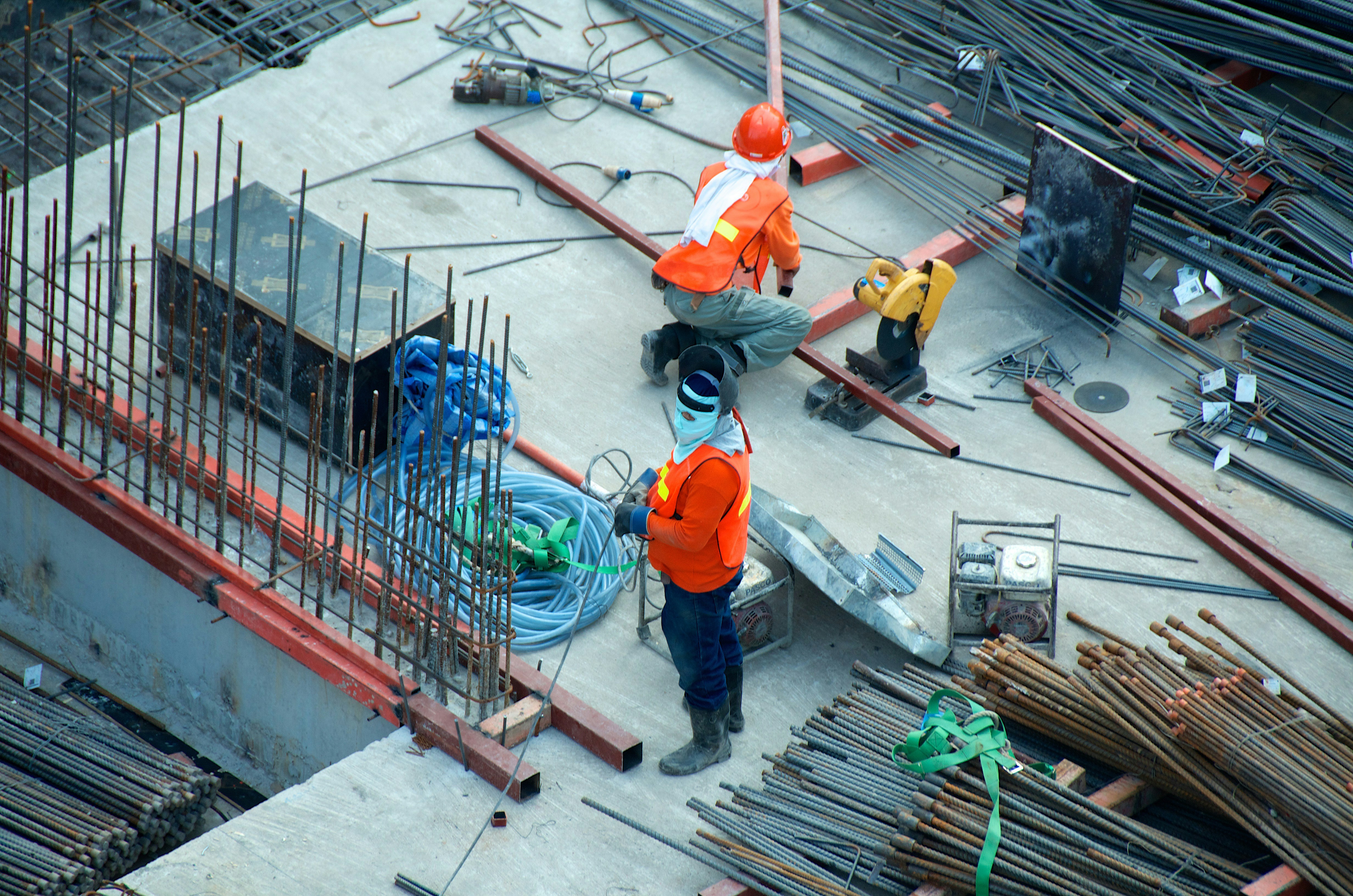
Effective Construction Financing Options for Homeowners
Many homeowners struggle to find the right financing options when building their dream homes. This blog post will explore effective construction financing options to make this process easier. Key sections will cover types of financing, how to evaluate your needs, and tips for choosing the right option. By understanding these aspects, readers will gain the knowledge to secure the best financing solution tailored to their unique requirements, ultimately simplifying the construction journey.
Key Takeaways
Construction financing helps cover costs for building or renovating properties effectively
Homeowners should assess their budget and project scope before exploring financing options
Various financing options, including loans and mortgages, cater to specific construction needs
Clear documentation and communication are crucial for securing and managing construction loans
Understanding loan terms and disbursement structures aids in effective budget management during projects
Understanding Construction Financing Options for Homeowners

Construction financing is a type of funding used to cover the costs associated with building or renovating a property. Homeowners can explore various financing options, including loans from lenders or mortgages that provide cash for construction needs. This section will outline the types of construction financing available, their benefits, and essential considerations for homeowners seeking to finance their dream projects.
The Definition of Construction Financing
Construction financing allows homeowners to secure funds specifically for home construction or renovation projects. This type of funding encompasses several options, including loans and mortgages that cater to the financial needs of the building process. With the right construction financing, homeowners can effectively manage costs related to materials, labor, and energy efficiency upgrades during their projects.
Evaluating Your Construction Financing Needs
Homeowners must first assess their project scope and budget when exploring effective construction financing options. Understanding requirements such as obtaining a certificate of occupancy and determining suitable home loans from various lenders is essential. This section will provide insights on renovation budgets and financing options, including resources tailored for veterans, ensuring a well-rounded approach to construction financing needs.
Assessing Project Scope and Budget
Assessing the project scope and budget is crucial for homeowners considering construction financing options. It begins with determining the overall price for the project, including materials, labor, and potential interior design elements. Utilizing a home equity loan or exploring funding options through a credit union can provide the necessary financial support, allowing homeowners to create a detailed contract that outlines every aspect of the build or renovation.
Types of Construction Financing Options for Homeowners

Homeowners have several valuable construction financing options to consider. Construction-to-permanent financing simplifies the borrowing process by converting to a permanent loan after completion. Standalone construction loans provide immediate funding for building projects. Renovation financing options cover home improvement expenses. Owner-builder financing solutions assist those acting as their own general contractor. Lastly, bridge loans serve as temporary funding to facilitate transitions between homes while maintaining affordable housing.
Construction-to-Permanent Financing
Construction-to-permanent financing is a popular option for homeowners looking to streamline their construction financing process. This type of financing allows borrowers to secure one loan that covers both the construction phase and converts to a traditional mortgage once the home is completed. With the benefit of lower interest rates typical of mortgage loans from entities like Freddie Mac and Fannie Mae, homeowners can save money while simplifying their payments.
Standalone Construction Loans
Standalone construction loans are a smart choice for homeowners planning to build a new house or undertake major renovations. These home construction loans provide upfront funding specifically for the construction phase, helping homeowners cover costs related to materials and labor without needing a permanent mortgage until the project is completed. Borrowers should work closely with their loan officer to discuss options and ensure they have sufficient collateral; this could include the future value of the house being built or even leveraging a home equity line of credit for additional support.
Standalone construction loans are designed for immediate funding during the building process.
Homeowners benefit from targeted financial support without long-term commitments early on.
Working with a loan officer helps in understanding the requirements and optimizing financing choices.
Renovation Financing Options
Renovation financing options are designed to assist homeowners looking to make improvements to their property without refinancing an existing mortgage. These options often allow individuals to tap into their home's equity, making it easier to fund upgrades that may increase the overall value and livability of the space. Working with a reliable mortgage loan officer can help homeowners navigate the associated fees and ensure they choose the best financing solution tailored to their specific income and project needs, whether that involves minor repairs or major renovations.
Owner-Builder Financing Solutions
Owner-builder financing solutions are an appealing option for homeowners who are willing to manage their own construction projects. These solutions often require a good credit score to qualify, which can significantly impact the interest rate offered. By securing financing that allows for direct project management, homeowners can avoid the cost of hiring a general contractor while maintaining control over their budget and schedule.
Bridge Loans for Homeowners
Bridge loans serve as a temporary solution for homeowners who need immediate funding to purchase a new property while waiting for their current home to sell. These short-term loans can often cover the down payment on the new home, which is especially helpful when navigating through several loan options. Homeowners should be prepared to meet certain construction loan requirements, such as a home inspection and proof of income, to qualify for this financing, ensuring a smoother transition between residences.
Bridge loans provide temporary funding for purchasing a new home.
They assist with the down payment while waiting for a current home to sell.
Homeowners should be aware of construction loan requirements and prepare for an inspection.
Key Features of Construction Financing

Understanding the key features of construction financing is vital for homeowners. This includes the length of financing terms, which can affect monthly payments and overall budget. Interest rates for construction loans can vary based on the borrower's credit history and perceived risk. Additionally, down payment requirements often depend on the occupancy ratio, so finding the right financing option is crucial for a successful project.
Length of Financing Terms
The length of financing terms for construction loans can significantly impact homeowners’ monthly payments and overall financial planning. Typically, construction loan rates are influenced by the duration of the financing, with shorter terms often resulting in higher monthly payments but potentially lower overall costs. Homeowners should also consider options available through the Federal Housing Administration, which can offer favorable terms and conditions, making it easier to manage cash flow during the construction phase. Understanding these terms can help homeowners make informed decisions, ensuring that their financing aligns with their budgeting and project goals.
Interest Rates for Construction Loans
Interest rates for construction loans can vary based on several factors, including the borrower’s credit score and the lender's risk assessment. Due to the short-term nature and perceived uncertainty of construction projects, these rates are typically higher than traditional mortgage rates. Homeowners seeking construction financing should shop around and compare offers from different lenders to ensure they receive the best possible rate, potentially saving money throughout the duration of their loan.
Down Payment Requirements
Down payment requirements for construction financing can vary based on the lender and the type of loan secured. Homeowners often need to provide a down payment ranging from 5% to 20% of the total project cost, affecting their overall budget. Understanding these requirements upfront can help individuals plan effectively and avoid any surprises during the financing process:
How to Choose the Right Construction Financing Option

Identifying one’s financial situation is the first step for homeowners in choosing the right construction financing option. This involves comparing various lenders and loan products to find the best fit. Homeowners must also understand the loan terms and conditions, which can significantly impact their overall budget. Each topic guides informed decisions that align with individual funding needs.
Identifying Your Financial Situation
Identifying one’s financial situation is a crucial step for homeowners when selecting the ideal construction financing option. It examines income, expenses, and credit scores to determine the best loan products available. For example, a homeowner with a stable income and good credit may qualify for lower interest rates, making it easier to manage monthly payments throughout the construction process.
Comparing Lenders and Loan Products
When homeowners begin comparing lenders and loan products for construction financing, it's essential to assess interest rates, fees, and terms associated with each option. Gathering quotes from multiple lenders can reveal differences in financing amounts and repayment schedules, impacting the entire budgeting process. Additionally, reviewing customer experiences and considering lender reputations can provide valuable insights and help determine which lender will best meet the homeowner's needs:
Gather quotes from various lenders to compare rates and terms.
Review the associated fees when evaluating loan products.
Consider the lender's reputation and customer service experiences.
Assess whether the loan meets your specific construction financing needs.
Understanding Loan Terms and Conditions
Understanding loan terms and conditions is essential for homeowners when choosing construction financing options. Homeowners should carefully review details such as interest rates, repayment schedules, and any potential fees associated with their loans. By grasping these elements, homeowners can make informed decisions that align with their budget and project goals, avoiding unexpected costs during the construction process.
Frequently Asked Questions on Construction Financing

Homeowners often have questions regarding construction financing. Understanding what documentation is needed for a construction loan is crucial. Additionally, homeowners should learn how disbursement is structured in construction financing and what factors can affect loan approval. Lastly, knowing how to handle changes to the project during construction can ensure a smoother process and better outcomes.
What Documentation Is Needed for a Construction Loan?
When applying for a construction loan, homeowners should prepare specific documentation to streamline the approval process. Typically, lenders require proof of income, tax returns, and a detailed project plan that outlines the construction timeline and budget. Having these documents ready can enhance the chances of loan approval, making it easier for homeowners to secure the financing needed for their projects:
How Is Disbursement Structured in Construction Financing?
In construction financing, disbursement is typically structured in stages, aligning with the specific milestones of the project. As progress is made, funds are released to cover costs related to materials and labor, ensuring homeowners can manage expenses effectively. Understanding this structure not only helps homeowners plan their budgets better but also prepares them for inspections or evaluations that may occur before each disbursement, streamlining the overall funding process.
What Can Affect My Construction Loan Approval?
Several factors can influence the approval of a construction loan, making it crucial for homeowners to understand these elements. A borrower's credit score plays a significant role; a higher score often leads to better rates and easier approvals, while a lower score may raise concerns for lenders. Additionally, a detailed and realistic project plan, including accurate cost estimates and timelines, helps demonstrate the project's feasibility, further enhancing the likelihood of loan approval.
How Do I Handle Changes to the Project During Construction?
When handling changes during construction, homeowners should communicate promptly with their builder and financing lender to reassess budgets and timelines. This proactive approach can help manage unexpected costs and ensure adjustments align with available construction financing options. Being prepared to present clear details about the changes can facilitate smoother discussions and adjustments across all parties involved:
Conclusion
Effective construction financing options empower homeowners to turn their building dreams into reality. By understanding different financing types, such as construction loans and renovation options, individuals can select solutions that best fit their project needs and financial situations. Thorough evaluation of budgets and lender comparisons ensure smart decision-making that optimizes resources. Ultimately, informed financing choices pave the way for successful home projects, enhancing both livability and property value.


